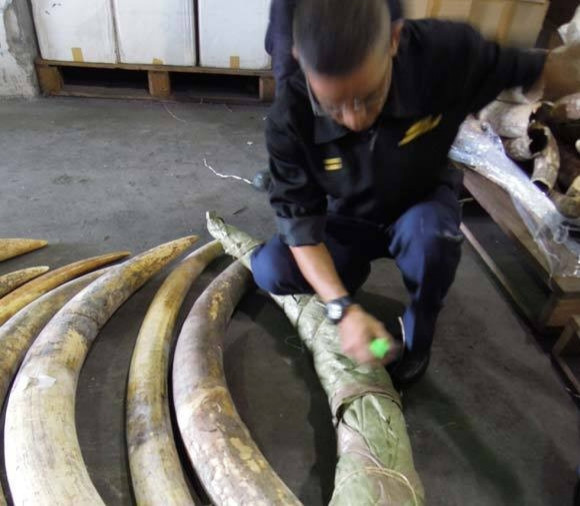Asian Demand Fuelling Illegal Trade of African Elephant Tusks

The illegal trade of elephant ivory tusks reached record levels in 2011, according to Traffic, an international wildlife trade monitoring group.
This year, 23 tons of tusks were seized by authorities, suggesting the killing of at least 2,500 elephants worldwide by poachers, Traffic said.
Tom Milliken, an expert on elephants at Traffic, stated: In 23 years of compiling ivory seizure data... this is the worst year ever for large ivory seizures. 2011 has truly been a horrible year for elephants.”
Trading in ivory was banned more than twenty years ago in an effort to save the beasts from extinction. However, the huge demand for ivory in Asia – where some people reportedly believe the substance has medicinal properties – has fostered the mass poaching.
The trade has particularly jumped from 2007 and now smugglers are apparently favoring sea routes to move their product over using airways, Traffic said.
The escalating large ivory quantities involved in 2011 reflect both a rising demand in Asia and the increasing sophistication of the criminal gangs behind the trafficking, Traffic said in a statement.
Most illegal shipments of African elephant ivory end up in either China or Thailand.
One of the largest seizures occurred last week in the port city of Mombassa, Kenya, where officials found 727 ivory pieces bound for Asia.
Traffic noted that over the past year, most ivory seizures have originated in either Kenya or Tanzania. Often, the illegal goods are transported to Asia through Malaysia. Earlier this month, officials in Malaysia seized hundreds of tusks valued at about $1.3-million bound for Cambodia.
The only common denominator in the trafficking is that the ivory departs Africa and arrives in Asia, but the routes are constantly changing, presumably reflecting where the smugglers gamble on being their best chance of eluding detection, Traffic said.
Milliken added: “Enforcement officers are up against in trying to outwit the criminal masterminds behind this insidious trade. As most large-scale ivory seizures fail to result in any arrests, I fear the criminals are winning.”
Based in Zimbabwe, Milliken also told Associated Press: “The escalation in ivory trade and elephant and rhino killing is being driven by the Asian syndicates that are now firmly enmeshed within African societies. There are more Asians than ever before in the history of the [African] continent, and this is one of the repercussions.”
Meanwhile, the mass-killings of African elephants continues.
The Washington-based Environmental Investigation Agency claimed, for example, that every month fifty elephants are being killed in Tanzania’s Selous Game Reserve alone.
© Copyright IBTimes 2025. All rights reserved.





















